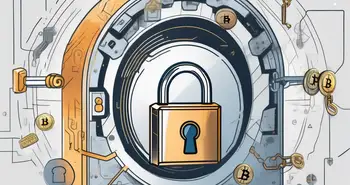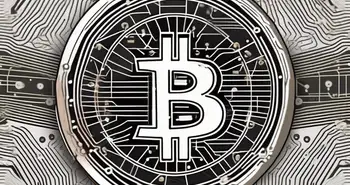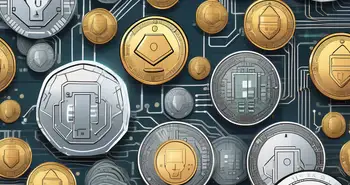Not Your Keys, Not Your Coins: How to Protect Your Assets

“Not your keys, not your coins” is a widely recognized phrase in the crypto world and is related to the importance of private keys in securing your digital assets. In this article, we'll delve into the world of cryptographic keys and show you why having control of your private keys directly translates to having ownership of your coins. We will review a few examples and scenarios to help you manage and protect your crypto portfolio.
- What Are Private Keys in Cryptocurrency
- Risk of Not Owning Private Keys
- Why Does Owning Your Keys Matter
- Morpher Wallet – Recoverable & Non-custodial Crypto Wallet
What Are Private Keys in Cryptocurrency
Cryptocurrency has a secret weapon for keeping your digital riches safe and sound – Public Key Cryptography! This technology is like having a two-part key to your secret stash of digital cash. One part is public, like your email address, and the other is private, like your password.
Explanation Of How Private Keys Work
Imagine you have a friend named Ovi who wants to send you some cryptocurrency, but he is worried about an eavesdropper named Tim. No worries! Ovi can send the funds to your public address, but only you can access it with your private key.
Your private key acts like a digital signature, encrypting your transactions and ensuring their validity. This way, even if Tim is monitoring the communication, he won't be able to get his hands on your funds.
Importance of Private Keys in Safeguarding Cryptocurrency Assets
The magic of cryptography goes even further by adding encryption, hash outputs, and trapdoor functions to keep your transactions confidential. In cryptocurrencies like Bitcoin, the network of nodes validate transactions using consensus rules and cryptographic proofs, making forging transactions nearly impossible.
So, the next time you send or receive bitcoins, remember the power of your private key as your digital signature and the unbreakable link to your public key. It's like having a secure vault for your digital riches, protected by the cryptographic might of Public Key Cryptography. Now, that's financial security with a touch of magic!
For that reason, former President Barack Obama infamously stated that the broad adoption of strong encryption would be like having “a Swiss bank account in your pocket.” To dive deeper, check out Andreas M. Antonopoulos' video on “Bitcoin: A Swiss Bank for Everyone's Pocket.”
Risks of Not Owning Private Keys
The world of cryptocurrency has seen its fair share of ups and downs, and one of the major lessons learned is the importance of owning one's private keys. Unfortunately, many individuals have been lulled into a false sense of security by thinking that storing their crypto assets with a big brand or well-established company is safe. However, history has shown us time and time again that centralized exchanges cannot always be trusted. Be especially careful of high leverage brokers or advertisements that promise you to make 100 dollars a day trading crypto.
Examples of Centralized Exchanges Losing User Funds
Recent events, such as the collapse of FTX and Alameda Research, have been touted as the worst single events in the crypto industry since its inception. Even though these events might not have had a significant impact relative to the notorious Mt. Gox hack, the fallout from these events will likely be far-reaching. Unlike Mt. Gox, these companies were seen as credible and “institutional” and gained the support of politicians, celebrities, and many users worldwide.
Sadly, in 2022 alone, according to Anthony Pompliano, an estimated 1.5 billion dollars has been lost to hackers across the most considerable exploits, including the recent 8 million dollar Solana wallet drain. To see the most recent hacks, visit Rekt News.

Threats of Hacking and Theft
The crypto industry has seen over 50 exchange platforms suffer crypto hacks since 2012, resulting in a total loss of over 4 billion dollars worth of cryptos. While successful hacking attempts dropped significantly between 2020 and 2021 as many platforms adopted more stringent security measures, the fact remains that there is no 100% secure exchange wallet, whether hot or cold. As a result, the safest way for investors to secure their digital assets is through personal hardware wallets.
In conclusion, the risks of not owning one's private keys cannot be overstated. Individuals need to take responsibility for the security of their assets and not rely on centralized exchanges. The examples of FTX, Mt.Gox, and the numerous hacks of crypto exchanges are a constant reminder of the risk of not owning one's private keys.
Well, if there's one thing we've learned from the FTX crisis, it's that silver linings are sometimes hard to spot… unless they're in the form of a newfound interest in “proof-of-reserves.” That's right, this little bump in the road actually managed to bring some much-needed attention to a topic that's been buzzing around the crypto scene for a while. If you're unfamiliar, proof-of-reserves ensures that crypto exchanges have enough assets to back up the trades they facilitate.
Why Does Owning Your Keys Matter?
Control over assets


As you can see, when an account is hacked, the funds are withdrawn right away. Through the most intricate ways, the funds are moved through privacy smart contracts like Railgun, and it is almost impossible to recover the stolen funds. Only through a massive effort like the Ethereum hard fork in 2016 things like these can be reverted. So one important thing is to own your keys, so you make magnitudes more difficult for hackers to seize your funds. However, this is not the only thing you should vary off. There are other less probable events, but the risks are higher – for example, the government seizing your funds.
Protection Against Theft and Loss
Nevertheless, even here, owning your private keys is a big help. According to a quote from Julian Assange, “no amount of violence can solve certain kinds of math problems.” The use of cryptography makes it nearly impossible for governments to seize assets, making it much harder than blocking fiat currency usage or confiscating gold, as the US government did in the 1930s. By owning their private keys, individuals can protect their freedom of speech, association, and contract, as well as their privacy, from government surveillance and violence. According to this piece, the success of Satoshi Nakamoto's pseudonymity and the resilience of the Bitcoin network against state mining shutdowns prove that cryptography is already obstructing the state's attempts to infringe on individuals' rights. With crypto, the state's guarantees of individual protections are becoming increasingly meaningless, making it all the more important to secure one's assets through encryption.
Ability to Access Funds Anytime, Anywhere
Remember, exchanges must comply with regulations, even if those regulations go against crypto values and exchanges do not want to enforce them. Especially if you live in a country under certain sanctions, your funds may be frozen within a week.
Or, to give another viewpoint, Michael Saylor states:
“Twelve words can set you free, but obviously not these twelve words.”

He means you can be free with your seed phrase and keys. If you're moving to another country, you can take your crypto assets, no questions asked. This level of portability and accessibility can't be matched by traditional assets like gold or fiat currency. So, if you're serious about protecting your wealth, keep your seed phrase safe and your keys secure.
Morpher Wallet – Recoverable & Non-custodial Crypto Wallet
For those seeking an easy yet secure solution, you might want to check out Morpher Wallet. Our wallet offers a safe and non-custodial solution for crypto storage. With the wallet, you have complete control over your keys and funds and can take your wallet anywhere. In addition, the wallet features 2-Step authentication for extra security and military-grade encryption to protect your keys and funds. Morpher also undergoes independent audits by top blockchain security firms and implements useful KYC measures to ensure users receive the safest wallet experience possible.
Conclusion
In conclusion, the thesis statement of “Not Your Keys, Not Your Coins” has been proven time and time again. Crypto holders must understand the importance of private key ownership, the difference between custodial vs. non-custodial wallets, and the consequences of not having full control of their assets. By entrusting a third party with your private keys, you're effectively handing over control of your hard-earned assets and leaving them vulnerable to theft or loss. So, don't let someone else hold the keys to your financial freedom. And once you control and own your keys, spread the gospel and empower others to regain their financial freedom.


Disclaimer: All investments involve risk, and the past performance of a security, industry, sector, market, financial product, trading strategy, or individual’s trading does not guarantee future results or returns. Investors are fully responsible for any investment decisions they make. Such decisions should be based solely on an evaluation of their financial circumstances, investment objectives, risk tolerance, and liquidity needs. This post does not constitute investment advice.

Painless trading for everyone
Hundreds of markets all in one place - Apple, Bitcoin, Gold, Watches, NFTs, Sneakers and so much more.

Painless trading for everyone
Hundreds of markets all in one place - Apple, Bitcoin, Gold, Watches, NFTs, Sneakers and so much more.









